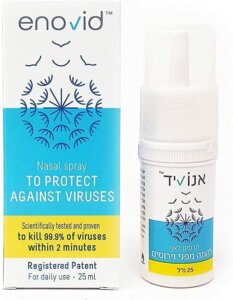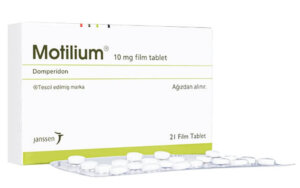 Antimuscarinic muscle relaxants form part of a class of drugs that treat a wide variety of medical conditions. Amongst others, the main conditions that muscarinic antagonists can treat include:
Antimuscarinic muscle relaxants form part of a class of drugs that treat a wide variety of medical conditions. Amongst others, the main conditions that muscarinic antagonists can treat include:
- Chronic obstructive pulmonary disease (COPD)
- Overactive bladder (OAB)
- Bradycardia (low heart rate)
- Asthma attacks
- Irritable bowel syndrome (IBS)
- Parkinson’s Disease
- Muscle spasticity and spasms
- Peptic ulcers
- Excess salivation and drooling
- Motion sickness
- Dilating pupils in ophthalmic procedures.
What are the effects of antimuscarinic muscle relaxants?
Antimuscarinic muscle relaxants are medications that can inhibit the action of the neurotransmitter acetylcholine (ACh) on muscarinic receptors. Acetylcholine‘s functions in muscle activity include:- Triggering contractions of both skeletal and smooth muscles. ACh binds to receptors on muscle cells in various internal organs, including the gastrointestinal tract. This action facilitates functions like intestinal peristalsis, aiding in digestion.
- Modulating the heart rate and cardiac contractions. It typically slows heart rate and reduces the force of heart muscle contractions.
- Managing muscle stiffness and involuntary muscle spasms (common in spinal cord conditions).
- Controlling involuntary muscle movements and other automatic body functions. ACh is the chief neurotransmitter of the parasympathetic nervous system. This is especially important in breathing and airways dilation.
- Dilation of blood vessels, making it a key factor in regulating blood pressure.
What is the connection between acetylcholine and muscarinic antagonists?
Acetylcholine (ACh) and muscarine interact with acetylcholine receptors at muscarinic acetylcholine receptors (mAChRs), in the following ways: ACh activates muscarinic acetylcholine receptors, which are widely distributed in the body. This triggers various physiological responses such as glandular secretion, heart rate modulation, and smooth muscle contraction. Muscarinic antagonists are compounds that bind to muscarinic acetylcholine receptors but do not activate them, so they prevent ACh from binding and activating them. One of the first discovered muscarinic antagonists was atropine, derived from the deadly nightshade plant. It leads to effects like dilated pupils, increased heart rate, and decreased glandular secretions.What are some of the actions that muscarinic antagonists block?
Muscarinic receptors responding to the neurotransmitter acetylcholine are involved in various physiological processes. These receptors are part of the “rest and digest” parasympathetic nervous system, which helps the body conserve energy and undertake routine maintenance. The essential function of muscarinic antagonists is to block muscarinic acetylcholine receptors and, in so doing, to inhibit or reduce the functions that are triggered when acetylcholine and muscarine (which mimics acetylcholine) are released in the parasympathetic nervous system. Muscarine stimulates the muscles in the digestive tract and the bladder to contract. It also triggers involuntary muscle contractions in both smooth and skeletal muscles. It can reduce blood pressure by relaxing smooth muscles in blood vessels and slowing and regulating the heart’s rhythm and the force of contraction.What are the main uses of antimuscarinic muscle relaxants?
- To treat spasms in visceral smooth muscles such as those in the gastrointestinal and urinary tracts, helping to alleviate discomfort and improve gastrointestinal function. The most common condition treated is IBS (irritable bowel syndrome.)
- To treat bladder disorders like overactive bladder (OAB), in which there is urinary urgency, leakage, and frequency, by reducing bladder muscle contractions.
- To treat muscle-related symptoms like spasticity and spasms that can occur in various conditions arising from accidents. Skeletal muscle relaxants are normally combined with analgesics to relieve the associated pain.
- To reduce the production of gastric acids, the main cause of peptic ulcers.
- To help improve motor function in individuals with Parkinson’s Disease, a fundamental central nervous system disorder.
- To treat respiratory conditions like Chronic Obstructive Pulmonary Disease (COPD) and asthma. These conditions are characterized by airflow obstruction and difficulty in breathing. Antimuscarinic relaxants are applied in these cases primarily to benefit from their bronchodilator effects. In COPD and asthma, the airways become narrowed, making breathing difficult. Antimuscarinic relaxants help by relaxing the bronchial muscles surrounding the airways, allowing more air to flow in and out of the lungs and easing breathing. They reduce the likelihood of airway spasms, common in asthma and COPD.
- In the case of COPD, antimuscarinic muscle relaxants are often used for long-term management to improve breathing and prevent exacerbations. They are particularly effective in managing symptoms and improving the quality of life. Clinical studies have shown that beyond their smooth muscle relaxation effects, antimuscarinics can reduce episodes of worsening symptoms in COPD, which can lead to substantial morbidity and mortality.
- Antimuscarinics are only useful in managing symptoms and reducing the frequency of asthma attacks. They are ineffective in treating an asthma attack, for which quick-relief medicines, such as albuterol and levalbuterol, are given either with an inhaler or a nebulizer to open the airways.
- To control excessive salivation and treat motion sickness.
- To restore the heart rate to normal levels in cases of bradycardia (abnormally slow heart rate.)
Which antimuscarinic muscle relaxant drugs are most often prescribed for OAB, COPD, asthma, and muscle spasms?
| Condition | Drug & dose | US Retail price | IsraelPharm price |
| OAB[1] | Novitropan 5 mg x 30 Tablets Detrol LA 2 mg x 28 Tablets Vesicare 10 mg x 30 Tablets Sanctura 20 mg x 30 Tablets | $87 $279 $470 $78 | $13 $109 $38 $18 |
| COPD & Asthma[3] | Atrovent Inhaler 20 mcg/200 dose Duoneb Vials 0.5mg/3.0mg 20 vials Spiriva Respimat 30 doses Stiolto Respimat 30 doses Tudorza Inhaler 0.4 mg 60 Doses Incruse Ellipta Inhaler 62.5 mcg Anoro Ellipta Inhaler 62.5 mcg | $105[2] $68 $550 $505 $617 $417 $550 | $49 $20 $108 $99 $76 $68 $126 |
| Muscle spasm | Muscol 30 mg x 20 Tablets | [4] | $26 |
| Notes: [1] Many drugs prescribed for OAB are not antimuscarinic muscle relaxants, for example Mirabegron (a beta-3 adrenergic agonist); Flomax and Jalyn (alpha blockers); Nocdurna (synthetic vasopressin) [2] Retail price adjusted to reflect the difference in total dosages in each package. [3] Antimuscarinic muscle relaxants are not rescue medicines for use in acute attacks and should not be used for treating sudden breathing problem [4] All versions of orphenadrine have been discontinued by US suppliers, but the drug is still sold in the EU as well as Israel, Australia and many other countries. | |||
Do antimuscarinic muscle relaxant drugs have common side effects?
Almost all antimuscarinic muscle relaxants share adverse effects largely due to their mechanism of action, which involves blocking the action of the neurotransmitter acetylcholine. These side effects include:- Dry mouth due to reduced saliva production.
- Difficulty in focusing due to antimuscarinic’s effect on eye muscles, leading to blurred vision and photophobia.
- Disruption of normal bowel movements results in constipation from reduced gut motility.
- Tachycardia
- Difficulty in urination due to the relaxation of the bladder muscles.
















